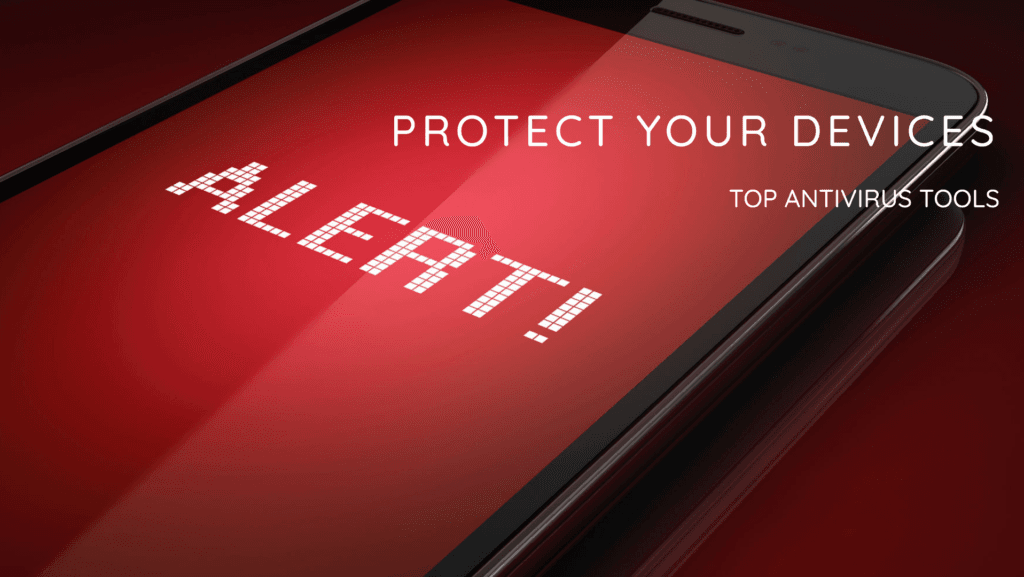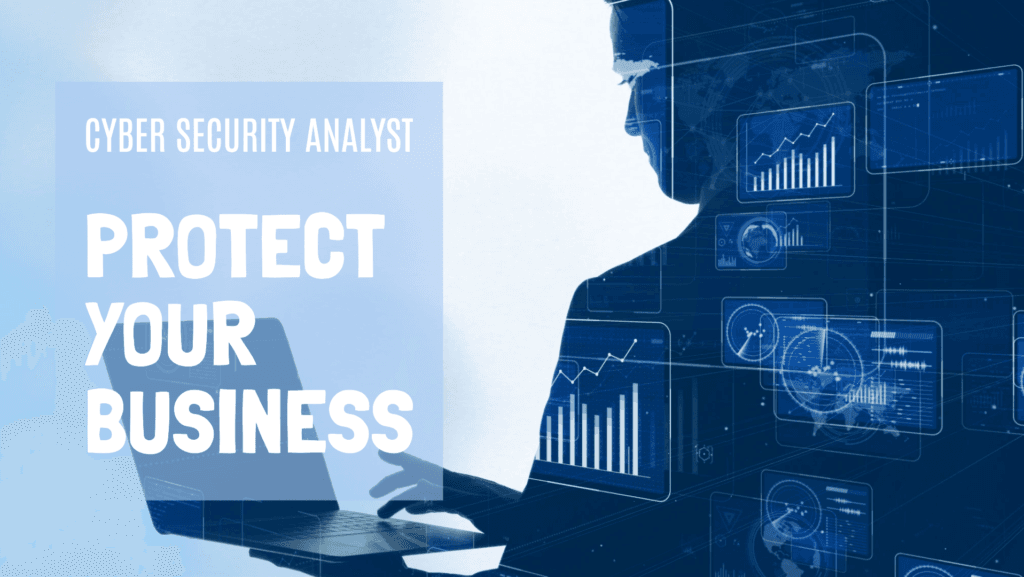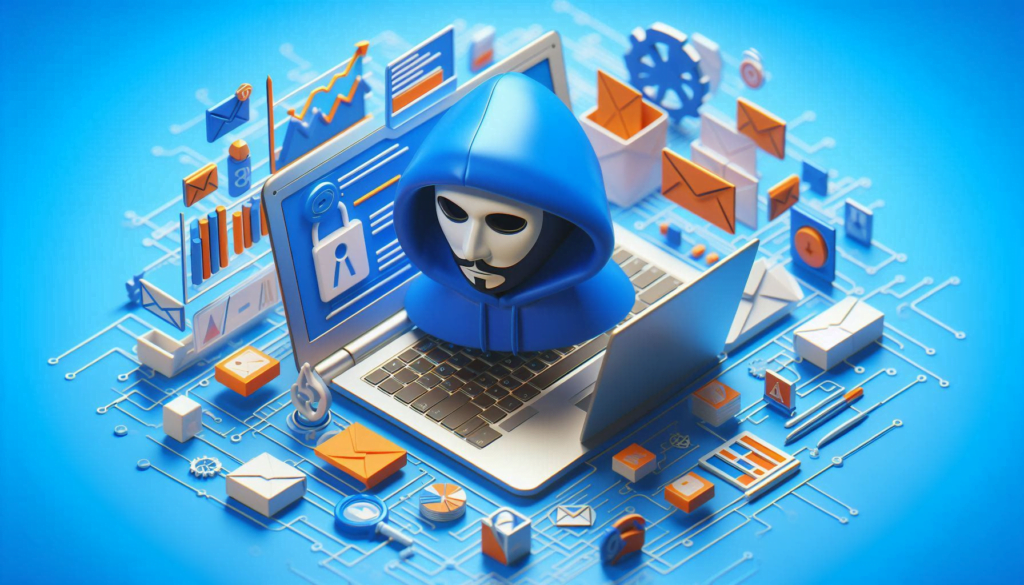Welcome to Technology Moment, The rise of cyber threats like malware, ransomware, and phishing attacks, protecting your personal and professional data is more critical than ever. That’s where antivirus tools come in, acting as a digital shield to safeguard your devices from harmful intrusions. In this blog, we’ll explore the top antivirus solutions available, helping you find the perfect tool to keep your digital life secure and stress-free. Stay tuned as we dive into the best options to protect your devices easily and effectively!
Whether you’re using your smartphone to browse social media, conducting financial transactions online, or working remotely on your laptop, cyber threats are constantly evolving and becoming more sophisticated. Without proper security measures in place, your sensitive information, such as personal details, passwords, and financial data, is at significant risk.
This is where antivirus tools step in as a crucial line of defense. These powerful software solutions are designed to detect, block, and eliminate harmful viruses, malware, and other online threats before they can cause damage. Modern antivirus programs go beyond simple virus detection; they offer comprehensive protection that includes features like real-time monitoring, secure browsing, and even protection against phishing scams.
In this blog post, we’ll explore the top antivirus tools available today, their features, and how they can help protect your devices easily and effectively. Whether you’re a tech-savvy user or someone new to cybersecurity, this guide will provide you with the information you need to choose the right tool for your digital safety.
What is an Antivirus Tool?
An antivirus tool is a software application designed to protect your digital devices—such as computers, smartphones, and tablets—from a wide variety of security threats, including viruses, malware, spyware, and other malicious programs. Think of it as a virtual security guard for your devices, working around the clock to keep harmful intrusions at bay.
How Does an Antivirus Tool Work?
Antivirus software functions by scanning your device for suspicious activities or code patterns that match known threats. Here’s a breakdown of how it operates:
- Signature-based Detection:
The tool compares files on your system to a vast database of known malware signatures. If it finds a match, it neutralizes the threat. - Heuristic Analysis:
This technique allows the software to detect unknown threats by analyzing the behavior of files or programs. If something behaves unusually, it’s flagged as a potential threat. - Real-time Monitoring:
Antivirus tools run in the background, monitoring new downloads, installations, and internet activities to catch threats before they cause damage. - Threat Removal and Quarantine:
When malware is detected, the software can either remove it or isolate the harmful file in a “quarantine” folder to prevent it from affecting your system.
Why Do You Need an Antivirus Tool?
With the internet becoming an integral part of everyday life, the risk of encountering cyber threats has skyrocketed. Downloading files, browsing websites, or simply opening an email can expose your device to harmful software. Here’s what an antivirus tool does for you:
- Protects Your Data: Keeps sensitive information like passwords and bank details safe.
- Blocks Malware: Prevents harmful programs from slowing down or crashing your system.
- Safe Browsing: Alerts you to unsafe websites or phishing scams.
- Prevents Unauthorized Access: Stops hackers from gaining remote access to your device.
Common Misconceptions
Some people believe that antivirus tools are unnecessary, especially for Mac users or those who “only browse trusted sites.” However, this is a dangerous misconception. Cyber threats evolve daily, and even seemingly legitimate websites can become compromised.
Key Features to Look for in an Antivirus Tool
Choosing the right antivirus tool can be a daunting task, especially with the wide variety of options available. To protect your devices effectively, it’s important to focus on key features that enhance security and user experience.
1. Real-Time Protection
This is one of the most critical features. Real-time protection ensures that threats are detected and neutralized as they happen, rather than after the damage is done. A good antivirus tool should constantly scan files, websites, downloads, and applications for potential malware or suspicious behavior.
- Example: If you unknowingly download a malicious file, real-time protection will instantly block and quarantine it.
- Benefit: Keeps your device protected without requiring manual scans.
2. Malware and Spyware Detection
Malware (malicious software) and spyware (software designed to steal your data) are among the most common threats. A robust antivirus should detect and remove different types of malware, including:
- Viruses: Code that infects your system
- Ransomware: Holds your data hostage for payment
- Trojans: Disguises itself as legitimate software
- Adware: Bombards you with unwanted advertisements
Effective detection and removal keep your system clean and running smoothly.
3. Automatic Updates
Cyber threats evolve rapidly, with new forms of malware appearing frequently. Antivirus tools must update their databases regularly to recognize and combat emerging threats. Automatic updates ensure your security software stays current without manual intervention.
- Benefit: Peace of mind knowing your protection is up to date
- Important Tip: Always enable automatic updates for both the antivirus program and your operating system.
4. Multi-Device Compatibility
In today’s world, people use multiple devices, including smartphones, tablets, laptops, and desktops. A good antivirus solution should protect all your devices under a single subscription.
- Look for compatibility with operating systems like Windows, macOS, Android, and iOS.
- Example: Some antivirus tools offer family plans that allow protection for up to 10 devices.
5. Firewall Integration
A firewall acts as a barrier between your device and potential cyber threats from the internet. While many operating systems come with built-in firewalls, some antivirus tools provide enhanced firewall protection.
- Benefit: Monitors incoming and outgoing network traffic to detect unauthorized access attempts.
6. Phishing Protection
Phishing attacks often come in the form of deceptive emails or fake websites designed to steal your sensitive information, such as login credentials or credit card details. Advanced antivirus software includes features to identify and block these scams.
- How It Works: Scans URLs for malicious indicators and warns users before they visit dangerous sites.
7. Performance Optimization Tools
Some antivirus solutions come bundled with features that help improve your device’s performance. These may include:
- Disk cleanup utilities
- Startup program managers
- RAM usage optimizers
These tools help keep your system fast and efficient while maintaining security.
8. Parental Controls
If you’re looking to protect your family, parental control features can help restrict access to inappropriate content online. They also allow parents to monitor online activity and set time limits for internet usage.
- Ideal for households with young children
- Keeps internet usage safe and age-appropriate
9. Email Scanning
Since emails are a common entry point for cyber threats, having an antivirus tool that scans incoming and outgoing emails is invaluable.
- Benefit: Detects malicious attachments or links in emails before you open them.
10. Secure Online Banking and Shopping Features
For people who frequently conduct financial transactions online, some antivirus tools offer secure browser features that protect sensitive data.
- Example: Encrypts payment information to keep it safe from hackers.
- Ideal For: Users who shop or bank online frequently.
11. User-Friendly Interface
Security software should be easy to use, even for non-technical users. A simple interface with intuitive navigation helps ensure you can access features and run scans effortlessly.
12. Customer Support
Reliable customer support is essential in case you encounter any issues with your antivirus tool. Look for options that provide:
- 24/7 live chat
- Email and phone support
- Knowledge base or FAQ section
Types of Cyber Threats Protected by Antivirus Tools
As technology evolves, so do the threats that target our devices and personal information. Cybercriminals continuously develop new methods to exploit vulnerabilities, which makes robust antivirus tools essential for safeguarding your devices. Below are the major types of cyber threats that antivirus software protects against:
1. Viruses and Worms
Viruses are malicious programs that attach themselves to legitimate files or applications and spread when those files are opened. They can corrupt data, slow down system performance, or even crash your computer.
Worms are self-replicating programs that spread across networks without needing a host file, often consuming system resources and causing significant network disruptions.
How Antivirus Helps: Antivirus software detects and quarantines these threats, preventing them from infecting your files and spreading across devices.
2. Ransomware
Ransomware is a particularly dangerous form of malware that locks users out of their devices or encrypts their files until a ransom is paid. Cybercriminals often demand payment in cryptocurrencies to maintain anonymity.
How Antivirus Helps: Advanced antivirus tools provide real-time monitoring to detect and block ransomware before it can encrypt files. Many modern solutions also offer file recovery options for ransomware attacks.
3. Phishing Attacks
Phishing involves deceptive emails, messages, or websites designed to trick users into providing sensitive information like passwords, credit card numbers, or social security numbers.
How Antivirus Helps: Antivirus tools with anti-phishing features scan emails and websites, flagging potentially harmful content to protect users from fraud.
4. Spyware
Spyware secretly monitors user activities, such as keystrokes, browsing history, and login credentials, often for malicious purposes like identity theft.
How Antivirus Helps: Antivirus software scans for and removes spyware, safeguarding your sensitive information from being compromised.
5. Adware
Adware generates excessive and intrusive advertisements, often redirecting users to unsafe websites or slowing down system performance.
How Antivirus Helps: Antivirus programs block and remove adware, ensuring a smooth and secure browsing experience.
6. Trojan Horses
A Trojan horse disguises itself as legitimate software but performs malicious actions once executed. Unlike viruses, Trojans don’t replicate but can steal data or provide backdoor access to cybercriminals.
How Antivirus Helps: Antivirus tools identify these deceptive programs and prevent them from causing harm to your system.
7. Rootkits
Rootkits are stealthy malware that grants unauthorized access to a computer or network, often remaining undetected for extended periods.
How Antivirus Helps: Modern antivirus solutions use deep scanning techniques to detect and neutralize rootkits, even when they hide in system processes.
8. Botnets
A botnet is a network of compromised computers controlled remotely by cybercriminals.
How Antivirus Helps: Antivirus tools detect botnet infections and remove malicious components to regain control of affected systems.
9. Zero-Day Threats
Zero-day threats exploit vulnerabilities in software before developers release patches to fix them.
How Antivirus Helps: Top antivirus tools use heuristic analysis and machine learning to predict and block these threats proactively.
Benefits of Using an Antivirus Tool
In a digital world where threats like malware, ransomware, and phishing attacks are constantly evolving, having an antivirus tool is not just a recommendation but a necessity. Let’s dive into the key benefits of using antivirus software and how it helps safeguard your devices and data.
1. Enhanced Data Security : One of the primary benefits of antivirus software is the protection of sensitive data. Personal files, financial information, and login credentials can be vulnerable without proper security. Antivirus tools detect and neutralize malicious software before it can access or damage your files, ensuring your sensitive information remains safe.
2. Protection from Identity Theft : Cybercriminals often deploy spyware to track your online activities, steal personal information, and commit fraud. Antivirus software identifies and blocks these threats, reducing the risk of identity theft. This is particularly critical for those who frequently shop or bank online.
3. Safe Browsing and Online Shopping : Many modern antivirus tools come with safe browsing features. They alert you when you’re about to visit a malicious website and block harmful downloads. Some also offer secure banking modes to protect your transactions when shopping or banking online.
4. Real-Time Threat Detection and Removal : Antivirus software continuously scans your device to detect threats in real time. This means you don’t have to wait for a manual scan to complete before discovering that your system is infected. Immediate threat neutralization ensures minimal damage and disruption.
5. Firewall Protection : Many antivirus tools include a built-in firewall. This acts as a barrier between your device and external threats, monitoring incoming and outgoing network traffic to prevent unauthorized access. A firewall adds an additional layer of security, making your system less vulnerable.
6. Performance Optimization : Beyond security, some antivirus tools come with features that help clean up junk files, optimize startup processes, and improve system performance.
7. Email and Spam Protection : Antivirus software often scans your emails for malicious attachments and phishing links. This prevents you from accidentally clicking on harmful content and becoming a victim of fraud or malware infections.
8. Multi-Device Compatibility : Most antivirus solutions now support multiple devices, including smartphones, tablets, and laptops. This ensures all your gadgets are protected under a single subscription, which is especially helpful for families and businesses.
9. Parental Controls : Some antivirus tools offer parental control features, allowing parents to monitor and restrict internet usage for children. This helps create a safer online environment for younger users.
10. Peace of Mind : Perhaps the most underrated benefit is the peace of mind that comes with knowing your devices are protected. With an antivirus tool actively guarding against threats, you can focus on your work, entertainment, or communication without constantly worrying about cybersecurity risks.
Top Antivirus Tools for 2025
In 2025, cyber threats are evolving faster than ever. Hackers are constantly developing more sophisticated malware, ransomware, and phishing schemes to exploit vulnerabilities in personal and business devices. Choosing the right antivirus tool is essential for ensuring a secure digital environment. Below, we explore some of the top antivirus solutions available in 2025 and what makes them stand out.

1. Norton 360
Key Features:
- Real-time threat detection and virus protection
- VPN for secure online browsing
- Password manager and dark web monitoring
- Cloud storage for backups
Why Choose Norton 360?
Norton remains one of the most trusted names in cybersecurity. With comprehensive protection, including identity theft defense and parental controls, it caters to individuals and families alike. Its lightweight interface ensures smooth device performance.
Pricing: Available in multiple subscription tiers, starting from $49.99 per year for basic protection.
2. McAfee Total Protection
Key Features:
- Advanced malware and spyware defense
- Cross-device compatibility (Windows, macOS, Android, iOS)
- Performance optimization tools
- Secure file encryption
Why Choose McAfee Total Protection?
McAfee offers a robust suite for users seeking both security and performance enhancements. Its cross-platform protection and intuitive user experience make it ideal for users with multiple devices.
Pricing: Starts at $39.99 per year for single-device coverage.
3. Bitdefender Total Security
Key Features:
- Multi-layered ransomware protection
- Behavioral threat detection
- Built-in VPN and parental controls
- Minimal impact on system speed
Why Choose Bitdefender Total Security?
Bitdefender stands out for its proactive defense mechanisms that block emerging threats. Its seamless operation ensures your device remains fast while being fully protected.
Pricing: Available from $44.99 per year for five devices.
4. Kaspersky Internet Security
Key Features:
- Protection against ransomware, spyware, and phishing
- Safe Money feature for secure online transactions
- Webcam and microphone protection
Why Choose Kaspersky Internet Security?
Kaspersky is widely recognized for its powerful malware detection and safe browsing features. It excels in providing secure environments for online financial transactions.
Pricing: Starts at $39.95 per year for three devices.
5. Avast Premium Security
Key Features:
- Full malware protection, including ransomware
- Advanced phishing protection
- Remote access shield and firewall
Why Choose Avast Premium Security?
Avast offers a simple yet powerful security solution. With features like remote access protection and a strong firewall, it’s ideal for safeguarding personal and business data.
Pricing: Starts at $69.99 per year for one device.
6. Trend Micro Maximum Security
Key Features:
- AI-powered threat detection
- Social media privacy scanning
- Parental controls and secure file storage
Why Choose Trend Micro Maximum Security?
Trend Micro’s AI-based security offers fast and efficient threat detection. It’s perfect for families and businesses looking for reliable, proactive protection.
Pricing: Available from $39.95 per year for three devices.
7. ESET Smart Security Premium
Key Features:
- Advanced malware and spyware detection
- Secure data encryption
- Anti-theft features for laptops
Why Choose ESET Smart Security Premium?
ESET is known for its lightweight yet highly effective protection. It’s a favorite among tech enthusiasts for its high customization options and powerful anti-theft capabilities.
Pricing: Starts at $59.99 per year for one device.
Comparing the Top Antivirus Tools
| Antivirus Tool | Best For | Starting Price (Annual) |
|---|---|---|
| Norton 360 | Families and individuals | $49.99 |
| McAfee Total Protection | Cross-platform users | $39.99 |
| Bitdefender Total Security | High-performance devices | $44.99 |
| Kaspersky Internet Security | Safe online banking | $39.95 |
| Avast Premium Security | Comprehensive security | $69.99 |
| Trend Micro Maximum Security | AI-powered protection | $39.95 |
| ESET Smart Security Premium | Customizable security | $59.99 |
Comparing the Best Antivirus Tools
Choosing the right antivirus tool often boils down to a few key factors, such as performance, speed, ease of use, and customer support. Below is a detailed comparison of popular antivirus solutions to help you make an informed decision.
1. Performance and Speed
Performance refers to how efficiently an antivirus tool protects your device without slowing it down. A good antivirus should strike a balance between security and system resource usage.
- Norton 360: Highly efficient with minimal system impact during scans. Great for both casual users and power users.
- Bitdefender Total Security: Known for lightning-fast scans and excellent detection rates without bogging down your system.
- Kaspersky Internet Security: Smooth performance with advanced scanning technologies that prioritize system speed.
Pro Tip: Always enable real-time protection for immediate threat detection without needing constant manual scans.
2. Detection and Protection Capabilities
A top antivirus must offer more than basic virus detection; it should protect against phishing, malware, ransomware, and spyware.
- McAfee Total Protection: Outstanding protection against malware and phishing scams; frequent updates to its threat database.
- ESET Smart Security Premium: Advanced malware detection using heuristic and behavioral analysis techniques.
- Trend Micro Maximum Security: Excellent defense against ransomware with dedicated monitoring features.
Look for solutions that incorporate machine learning to detect emerging threats proactively.
3. Ease of Use
User experience plays a critical role, especially for non-tech-savvy users.
- Avast Premium Security: Offers a clean, intuitive interface suitable for beginners.
- Kaspersky Internet Security: User-friendly dashboard with clear options and automatic updates.
- Bitdefender: Simplifies tasks with automation features for quick setup and management.
Choose an antivirus tool with straightforward installation and navigation.
4. Customer Support
In case of technical difficulties, having access to responsive customer service is essential.
- Norton 360: 24/7 live chat, email, and phone support with knowledgeable agents.
- McAfee: Comprehensive knowledge base along with live technical support options.
- ESET: Provides fast and reliable email support and live chat for premium users.
Opt for services that offer around-the-clock assistance.
5. Additional Features and Value for Money
Modern antivirus tools often come with bonus features like password managers, secure VPNs, and parental controls.
- Norton 360: Bundles include VPN services and cloud backup storage.
- Bitdefender Total Security: Password manager, parental controls, and device optimizer.
- McAfee Total Protection: Identity theft protection and file encryption.
When evaluating pricing, consider annual subscription costs versus the number of features you receive.
Free vs. Paid Antivirus Tools
Choosing between a free and paid antivirus tool can be a challenging decision. While both offer some level of protection, they differ in the range of features, security coverage, and overall performance. Let’s break it down to help you make an informed choice.
1. Free Antivirus Tools: What They Offer
Free antivirus programs are appealing because they don’t require any financial investment. However, they come with limitations that might not provide complete protection for all your devices.
Key Features of Free Antivirus Tools:
- Basic Virus Protection: Guards against common malware, including simple viruses and spyware.
- Real-Time Scanning: Provides basic monitoring for suspicious files and programs.
- Limited Malware Definitions: Often lags behind paid versions in detecting new and advanced threats.
Pros:
- No cost — completely free to download and use.
- Easy to install and set up.
- Suitable for basic protection on personal devices.
Cons:
- No advanced features such as firewall protection, ransomware shields, or parental controls.
- Often comes with ads or prompts to upgrade to the paid version.
- May lack robust customer support.
2. Paid Antivirus Tools: Why They Might Be Worth It
Paid antivirus solutions go beyond basic protection, offering comprehensive security for your devices. These tools are designed for users who prioritize strong data security and advanced threat protection.
Key Features of Paid Antivirus Tools:
- Advanced Threat Detection: Protects against sophisticated cyber threats like ransomware, zero-day exploits, and phishing attacks.
- Additional Security Features: Includes firewalls, VPNs, password managers, and parental controls.
- Device Optimization Tools: Helps enhance system performance by cleaning unnecessary files and managing startup processes.
- Multi-Device Support: Protects multiple devices (PCs, smartphones, tablets) under one subscription.
- Premium Customer Support: Provides 24/7 customer assistance for technical issues.
Pros:
- Comprehensive protection against a wide range of threats.
- Extra features for online privacy and data security.
- Regular updates to defend against new and emerging threats.
- Better system performance and user experience.
Cons:
- Requires a subscription fee (usually monthly or annually).
- May use more system resources than free options.
3. Which One Should You Choose?
Go for Free Antivirus if:
- You use your device mainly for basic tasks like browsing the web, watching videos, and checking emails.
- You have minimal personal or financial data stored on the device.
Opt for Paid Antivirus if:
- You handle sensitive data, including online banking and personal documents.
- You want comprehensive protection for multiple devices.
- You need advanced features like anti-phishing protection and secure VPN access.
How to Choose the Right Antivirus Tool
Selecting the right antivirus tool for your device is a critical decision in ensuring your cybersecurity. With numerous options available, making an informed choice requires evaluating several factors. Below is a detailed guide to help you make the best selection:
1. Assess Your Needs
Start by identifying the specific requirements for your devices:
- Number of Devices: Do you need protection for just a personal laptop, or do you have multiple devices, including smartphones and tablets, to secure?
- Type of Use: If you’re a casual internet user, basic antivirus software might be sufficient. However, for professionals or gamers, tools with advanced features like real-time threat detection and low CPU usage are more suitable.
- Nature of Data: If you handle sensitive information such as financial records or client data, investing in a high-security tool is essential.
2. Budget Considerations
Antivirus tools come in a wide range of pricing models:
- Free Versions: Suitable for users seeking basic malware protection. These tools often lack advanced features such as ransomware protection and secure browsing.
- Paid Subscriptions: Provide comprehensive security features, including VPN services, parental controls, and priority customer support.
- Family and Business Plans: If multiple users need protection, family bundles and business packages often save money while offering enhanced features.
3. Device Compatibility
Ensure the antivirus tool supports the operating systems and devices you use:
- Windows vs. Mac: Not all antivirus software offers the same level of protection for different operating systems. While Windows faces more threats, Macs also need robust antivirus solutions.
- Mobile Devices: Check whether the tool includes apps for Android and iOS devices.
- Multi-Device Protection: Some premium packages offer licenses for multiple devices across platforms, ideal for households and small businesses.
4. Security Features
Look for features that meet your security needs:
- Real-Time Threat Detection: Protects your device from malware the moment it’s detected.
- Firewall Integration: Adds an extra layer of protection against unauthorized access.
- Anti-Phishing Protection: Safeguards you against scams and fraudulent websites.
- Ransomware Protection: Prevents hackers from encrypting and holding your data hostage.
- Secure Browsing: Ensures safe internet usage by blocking malicious sites.
5. Performance and Speed
Choose antivirus software that doesn’t slow down your system:
- Look for lightweight tools designed for efficiency.
- User reviews and independent performance tests can provide insights into a tool’s impact on system performance.
6. Customer Support
Reliable customer support is vital for quick troubleshooting:
- Check for 24/7 live chat or phone support.
- Ensure access to extensive knowledge bases and user forums.
7. User-Friendly Interface
A well-designed, intuitive interface makes a big difference:
- Even non-tech-savvy users should easily navigate and use the tool.
- Look for dashboards that provide clear reports on threats and system scans.
8. Independent Lab Test Results
Check independent security testing organizations such as AV-Comparatives, AV-Test, and SE Labs for performance and reliability ratings.
- These labs provide unbiased insights into malware detection rates and real-world effectiveness.
9. Privacy and Data Protection
Ensure that the antivirus software adheres to privacy standards:
- Read the privacy policy to understand how your data is handled.
- Prefer tools that limit data collection and use secure encryption methods.
10. Trial Periods and Money-Back Guarantees
- Use trial periods to test features and compatibility with your device.
- Ensure there’s a refund policy if you’re dissatisfied after purchasing.
Tips for Maximizing Antivirus Protection
Using an antivirus tool is a fantastic first step to protecting your digital life, but it’s not a one-and-done solution. To get the most out of your antivirus software and ensure comprehensive protection, follow these best practices:
1. Keep Your Antivirus Software Updated
Cyber threats are constantly evolving, with new malware variants emerging daily. Antivirus software developers regularly release updates to combat these threats.
- Why it matters: Updates include virus definitions and security patches to detect and eliminate the latest threats.
- What to do: Enable automatic updates or manually check for updates frequently.
2. Run Regular Scans
Even with real-time protection, scheduled scans are essential.
- Why it matters: Full system scans can detect dormant malware that might not trigger real-time alerts.
- What to do: Schedule weekly or bi-weekly scans for thorough checks and immediate action on potential threats.
3. Avoid Clicking on Suspicious Links
Phishing emails and scam links are major sources of malware.
- Why it matters: Even the best antivirus tool may struggle to protect you if you willingly download malicious content.
- What to do: Hover over links to check their destination and avoid links from unknown or untrusted sources.
4. Enable Firewall Protection
- Why it matters: Firewalls monitor and control network traffic, helping to prevent unauthorized access.
- What to do: Ensure that your firewall is activated along with your antivirus tool for added defense.
5. Use Strong Passwords
Weak passwords make it easier for attackers to gain access to your accounts or devices.
- Why it matters: Even if malware doesn’t directly harm your system, compromised accounts can be just as damaging.
- What to do: Use unique, complex passwords and consider a password manager to help maintain secure logins.
6. Be Cautious with Public Wi-Fi Networks
Public networks are hotspots for cybercriminals to intercept data.
- Why it matters: Hackers can easily inject malware or spy on your internet activity through unsecured connections.
- What to do: Use a virtual private network (VPN) to encrypt your data when using public Wi-Fi.
7. Disable Auto-Downloads
Automatically downloading files can be risky if malware-laden files are involved.
- Why it matters: Hackers often disguise malware as legitimate downloads.
- What to do: Configure your browser settings to prompt before downloading files.
8. Regularly Back Up Important Data
Data backups can be a lifesaver in the event of a ransomware attack or critical system failure.
- Why it matters: If a virus corrupts or locks your data, backups ensure you can restore your information without paying a ransom.
- What to do: Schedule automatic backups to secure cloud services or external drives.
9. Review Security Settings Regularly
Every application and device has security settings that may need fine-tuning.
- Why it matters: Default settings may not provide maximum protection.
- What to do: Periodically review and customize settings for stricter security protocols.
10. Educate Yourself and Stay Informed
Cybersecurity awareness is just as important as having the right tools.
- Why it matters: Understanding common threats helps you avoid risky behavior.
- What to do: Stay updated on emerging threats and learn about safe online practices.
Common Myths About Antivirus Software
Despite the widespread use of antivirus tools, several misconceptions persist that often mislead users. Let’s debunk some of these myths:
1. “Macs Don’t Need Antivirus”
Many people believe that macOS devices are immune to viruses. While it’s true that Macs have a robust security system, they are not invincible. Cybercriminals are increasingly targeting macOS users as their market share grows. Malware, phishing scams, and ransomware attacks can affect Mac users just as much as Windows users.
2. “Antivirus Slows Down My Computer”
Some users avoid installing antivirus software because they think it will drastically reduce their system’s performance. Modern antivirus tools are designed to be lightweight and efficient. They run in the background with minimal resource consumption and only perform intensive scans when needed.
3. “Free Antivirus is Just as Good as Paid Versions”
While free antivirus software offers basic protection, it often lacks features like advanced threat detection, ransomware protection, and customer support. Paid versions provide comprehensive security, ensuring better protection against sophisticated threats.
4. “I Don’t Need Antivirus if I Browse Carefully”
Even the most tech-savvy users can fall victim to cyber threats. Hackers exploit vulnerabilities in websites, ads, and downloads. Reliable antivirus software offers an extra layer of security to shield users from unexpected risks.
5. “Antivirus Software Can Catch Every Threat”
No antivirus tool guarantees 100% protection. Cyber threats constantly evolve, and while antivirus tools provide robust defense mechanisms, staying cautious and practicing safe online behavior is essential.
The Future of Antivirus Tools
As technology advances, antivirus tools are evolving to combat increasingly sophisticated cyber threats. Below are some key trends shaping the future of antivirus software:

1. AI and Machine Learning Integration : Future antivirus solutions will rely heavily on artificial intelligence (AI) and machine learning to detect and respond to threats in real-time. These technologies allow the software to identify unusual patterns of behavior and block potential threats before they cause damage.
2. Predictive Security Technologies : Rather than simply reacting to known threats, next-generation antivirus tools will predict and prevent attacks. By analyzing global data trends, these systems will anticipate new malware variants and block them preemptively.
3. Cloud-Based Security Solutions : The shift toward cloud computing is enabling faster and more efficient antivirus updates. Cloud-based solutions will reduce the need for extensive local storage, providing faster threat detection and freeing up device resources.
4. Comprehensive Security Suites : Antivirus tools are evolving into all-in-one security suites, offering features like password managers, secure VPNs, parental controls, and identity protection. This shift provides users with a holistic approach to cybersecurity.
5. IoT Device Protection : As smart devices become more prevalent, the need to secure IoT ecosystems will grow. Future antivirus solutions will protect not only computers and smartphones but also smart home devices, wearables, and connected appliances.
6. Enhanced User Experience and Automation : To minimize user involvement, upcoming antivirus solutions will be fully automated, requiring minimal configuration. This will ensure a seamless user experience without compromising security.
7. Stronger Collaboration with Cybersecurity Firms : Antivirus providers are expected to collaborate more with global cybersecurity agencies to stay ahead of emerging threats. This cooperation will lead to faster information sharing and improved threat response capabilities.
Conclusion
In today’s digital world, where cyber threats continue to evolve rapidly, staying proactive about device protection is crucial. Antivirus tools serve as your first line of defense, shielding your devices from malicious software, ransomware, spyware, and more. With countless options available, choosing the right solution tailored to your needs can safeguard your personal and business information.
Beyond simply installing antivirus software, it’s important to stay vigilant by keeping it updated, practicing safe browsing habits, and maintaining an overall security-conscious mindset. By doing so, you can enjoy peace of mind while navigating the online world confidently. Protecting your devices is no longer optional — it’s a necessity.
FAQs
What is the best antivirus for small businesses?
For small businesses, it’s essential to choose antivirus software that offers multi-device support, real-time protection, and advanced threat detection. Norton Small Business, Bitdefender GravityZone, and McAfee Endpoint Protection are popular choices, offering scalable solutions designed to meet the needs of growing enterprises.
How frequently should I perform a complete system scan?
Running a full system scan once a week is generally recommended for most users. However, if you frequently download files from unknown sources or visit potentially unsafe websites, more frequent scans are advisable. Many antivirus tools allow you to schedule scans for added convenience.
Can antivirus tools protect against phishing scams?
Yes, many modern antivirus solutions come equipped with features that detect and block phishing attempts. They alert users when visiting malicious websites or clicking on harmful links in emails. However, users must still exercise caution by verifying links before clicking.
Is free antivirus software reliable?
Free antivirus tools can provide basic protection against common threats. However, they often lack advanced features such as ransomware protection, identity theft monitoring, and customer support. For comprehensive security, it’s usually worth investing in a paid version.
How do I know if my device has a virus?
Common signs of a virus-infected device include slow performance, frequent crashes, unexplained pop-ups, and changes to browser settings without your permission. Antivirus software can help detect and remove these threats efficiently. If you notice any unusual behavior, running a system scan is recommended immediately.













